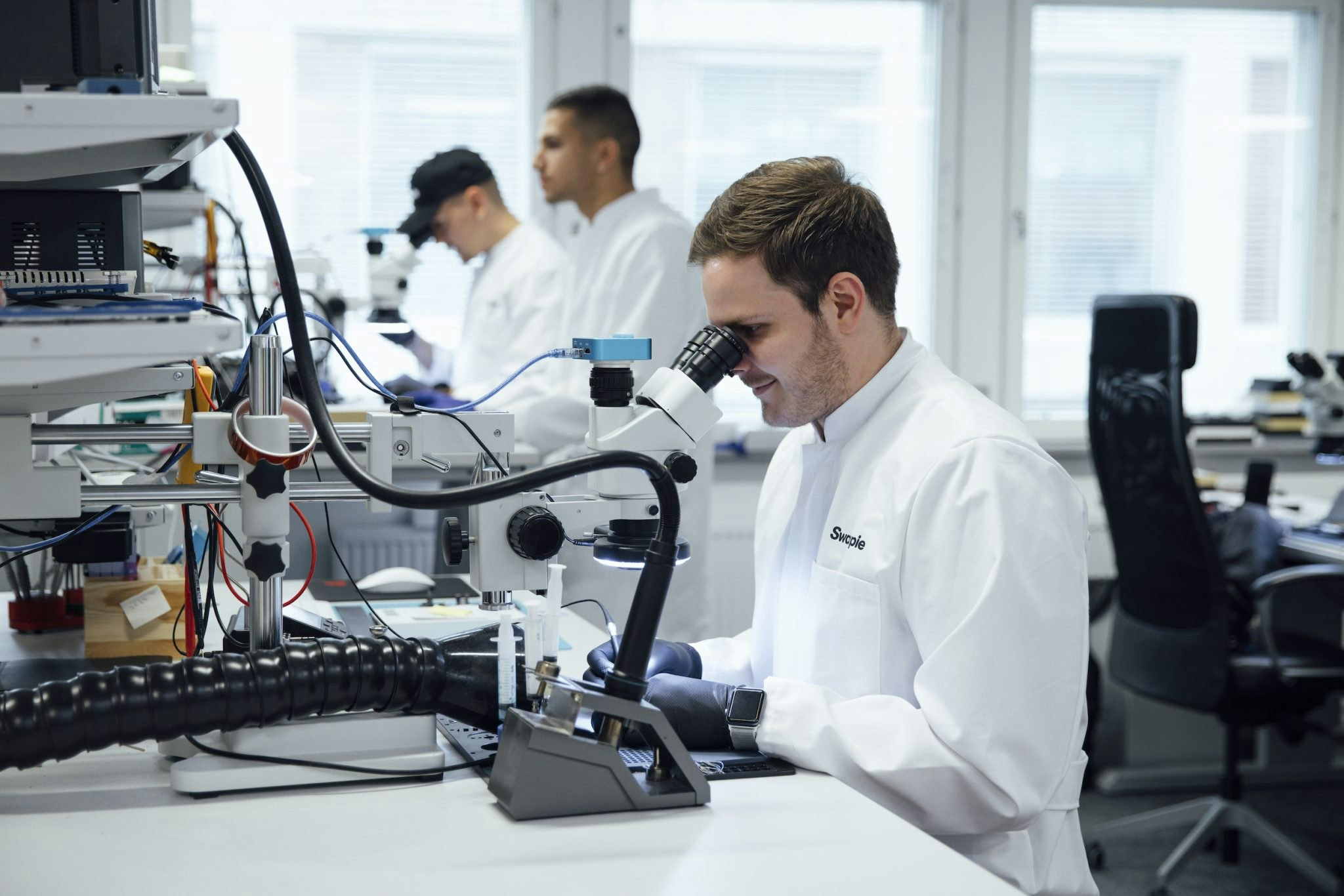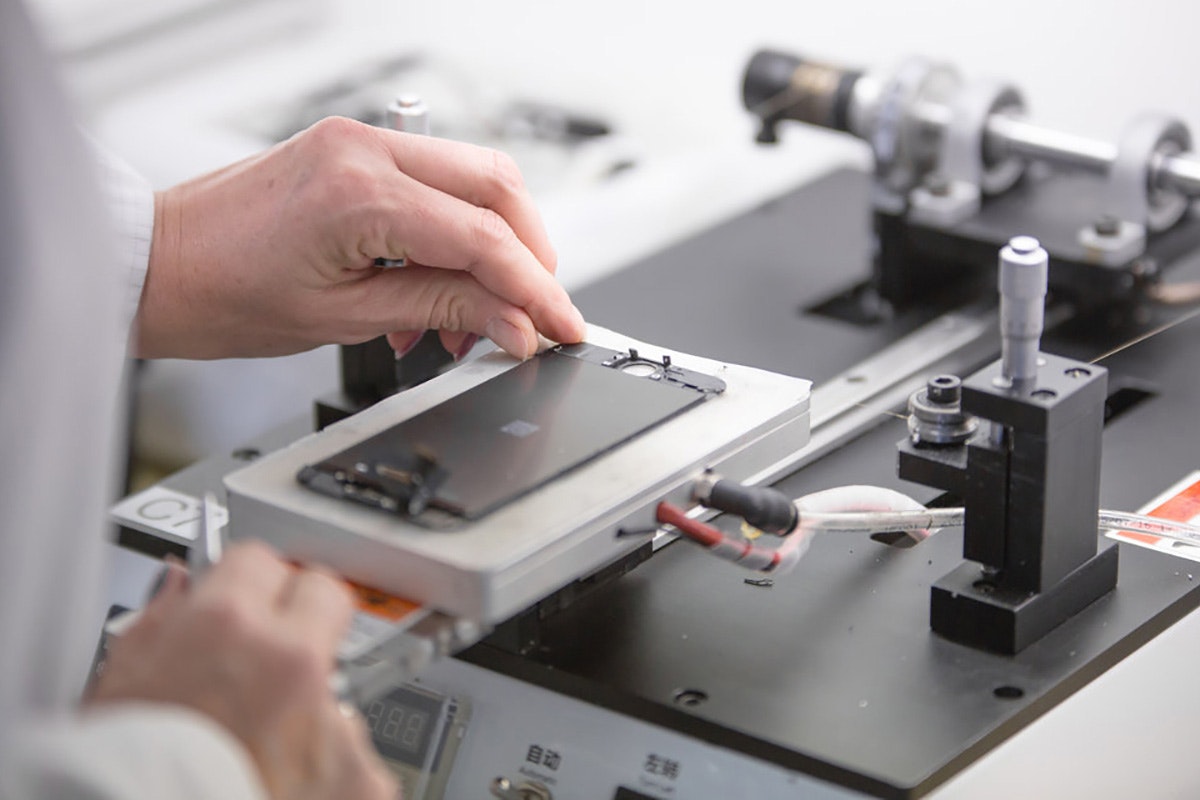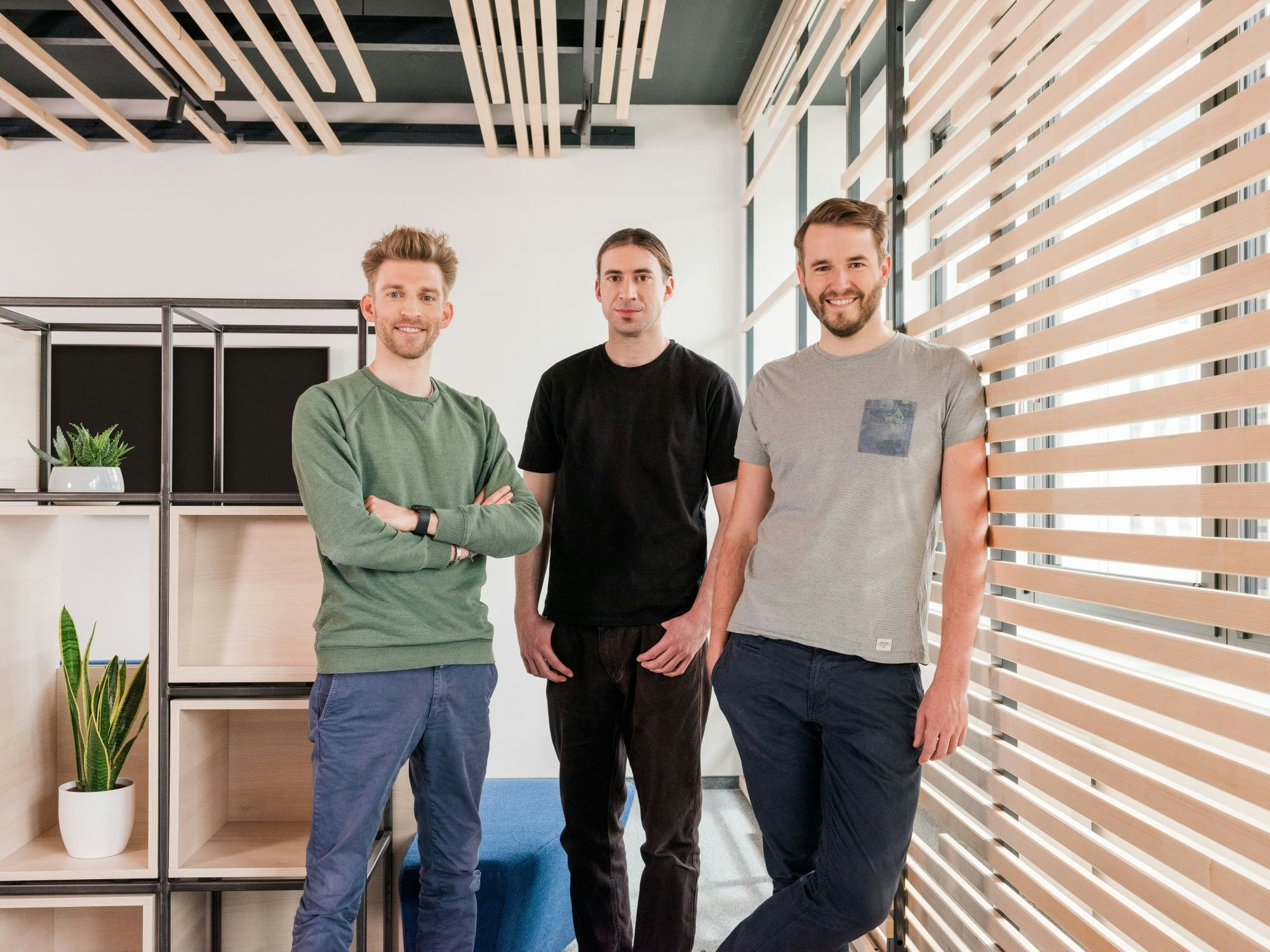Money is pouring into the European refurbished electronics space. Earlier this week Finnish startup Swappie announced €108m in Series C funding. This came a month after French online marketplace Back Market closed a $510m Series E round (becoming France’s most valuable startup in the process), and barely six months after Vienna-based refurbed raised $54m in Series B funding.
Combined, the three companies have raised more than €1bn in the last two years alone.
With each rapidly expanding, and other startups appearing, is the industry becoming saturated — is there a risk of too many players competing aggressively in major European markets?
A €100bn-a-year market
It's estimated that the smartphone market in Europe is worth around €100bn a year, with used or refurbished phones making up a little over 10% of that. At the same time, the global market for used and refurbished smartphones is expected to grow by more than 10% a year between now and 2027.
“The needle has moved for the best, I'd say, in the last five to 10 years, but there is still so much room for growth,” Vianney Vaute, cofounder and chief creative officer at Back Market, tells Sifted. “Maybe there are more players, but it's a growing cake. It's not the same dynamics that you can see in more mature markets that are not growing anymore.”
It’s estimated that France has the highest share of refurbished phones —10% of all phones; compared to 5% in the UK — with the European market for refurbished phones currently worth €1.7bn, according to research by data analytics company Kantar Group.
“Yes, there are three big companies,” adds Peter Windischhofer, refurbed’s cofounder and chief executive. “But on the other hand, if you really look at new electronic sales we're talking about a €100bn market in Europe. A few percent of that is captured by the refurbished market, we’ve not even started yet on the penetration journey in most markets in Europe, including Germany.”
How do the big three compare?
Each of the major players is taking a somewhat different approach: Back Market and refurbed act as marketplaces, relying on third-party companies to refurbish the equipment, while Swappie keeps the whole refurbishment process in-house, from buying to refurbishing to selling the phones.
Vaute says that there’s a first mover advantage and that the marketplace model was needed to unlock the full potential of the sector. “But there is so much to be built and invented, and when we look at our model we are not just focusing on growth in our core refurbished market, but also precisely how we can build accelerators to keep eating up market shares of new devices.” (It’s estimated that one in six refurbished phones sold in Europe today is sold by Back Market.)
Vaute adds that this means looking at client services, optimising logistics, and trying to push further on buybacks and swaps. “All of these things are going to be needed if you want to keep working on that ratio of one to ten [used versus new sold].”
You see countless startups [...] feeling like they're building something but the minute they unplug the marketing budget there is nothing
Sami Marttinen, cofounder of Swappie, suggests that many startups and scaleups are a bit afraid of opening up physical processes. However, based on customer interviews they believe that’s what the industry needs “if you don’t just want to own the existing market, but want to also be a market creator and push this category towards a more sustainable direction.”
Meanwhile, Paris-based CertiDeal, which raised its own €15m round in November, buys its phones from telephone companies, which guarantees that the phones have had just one previous owner, allowing full traceability, with CertiDeal offering two-year warranties compared to just one year for most of its competitors.
“CertiDeal is a refurbished phones specialist that manages all the chain of value from sourcing the products, to refurbishing and delivering it to our clients,” says Salvatore Macrì, growth marketer at CertiDeal. “[We’re] not just a marketplace like some of our competitors that operate as middlemen between sellers and buyers.”
Burning money on advertising
The major electronics refurbishers in Europe are currently spending big money on advertising, with billboards and television commercials appearing across major European cities. However, it needs to be a careful balance.
“You see countless startups in the cemetery of good ideas, that have been burning cash, feeling like they're building something but the minute they unplug the marketing budget there is nothing,” says Back Market’s Vaute.
“I think in the first stages of expansion that’s a significant piece of the budget,” says Swappie cofounder Marttinen. “If we look at our last funding round, it was really about accelerating the growth of the category, like marketing budget, building the team and building the technology.”
This time around the company is looking to scale up its operations across its 15 markets, especially in Germany and Italy, in part by hiring a thousand people by year-end, as it also looks to expand beyond iPhones.
Refurbed’s Windischhofer says they don’t disclose their marketing spend, but that they want to grow quickly when accessing a new market “so we spend a lot on marketing”. Still, he says, the biggest growth driver for them is word of mouth. “It’s basically free advertising. They liked the story that we're selling, which is that we help you live more sustainably, and ultimately that's what really drives our growth.”
Green Dreams
Increasingly, marketing campaigns are focusing on the environmental credentials of refurbished versus new. “Tech shouldn’t cost the earth. Literally,” says Back Market’s ad. “Be the superhero our Earth deserves,” says Swappie’s website.
Refurbished electronics sellers are hoping to tap into a growing number of consumers who are choosing second-hand products due to sustainability concerns — it’s estimated that manufacturing a smartphone creates 90% of the emissions produced over that phone’s lifetime.
It’s a huge market, but I don’t see any reason why it couldn’t become like the used car market. I think it’s only going to grow from here
"We watch our environmental footprint very closely, and we as a company are climate positive, which means that we actually suck more CO2 out of the air than is added by us," says refurbed’s Windischhofer.
However, research by Kantar suggests that quite a low percentage of people think about sustainability when they buy a new phone.
“Approximately 18% of consumers say sustainability is important to them in smartphones,” says Jack Hamlin, a commercial tech analyst from Kantar. It’s perhaps down to consumers not considering that sustainable tech is out there.
The used-car salesman problem
Many are looking towards the size and maturity of the second-hand car industry as a guide to how large the refurbished electronics market could be.
“It’s a huge market, but I don’t see any reason why it couldn’t become like the used car market. I think it’s only going to grow from here,” says Swappie’s Marttinen. In the UK around three times more used cars are sold each year than new ones, and the pandemic has caused used car sales to rise even further.
Yet second-hand car salesmen get a bad rep, with many consumers unsure about who is trustworthy and who isn’t.
“The majority of our customers are buying a refurbished phone for the first time, because they haven’t trusted in the category before,” says Marttinen.
Going forward, building this trust will become a key task for those in the sector.
Risks to the business
Meanwhile, the big telecoms players — both the phone manufacturers and network operators — are unlikely to let the refurbishment specialists have this market all to themselves.
According to Kantar’s Hamlin, one of the biggest challenges facing these startups could be a pivot from old school network providers, who have been watching consumers increasingly opting to buy their handsets disconnected from specific networks.
“In order to combat this, they are increasingly offering trade-in deals, which we know is a foothold into them offering their own refurbished devices,” he says. “I suspect that in a year or so, after they’ve had time to build stock, they will then begin offering them as refurbished models.”
This, he says, will be a powerful offering. “The network vendors have a legacy of trust versus the startups.”
And it’s not just the network vendors. Smartphone manufacturers like Apple and Samsung now sell reconditioned phones on their sites, adding further competition.
Startups could also face challenges from trends happening in the wider tech market.
“In the smartphone market, sales are down in the most part and consumers are keeping hold of their phones for longer,” says Hamlin. Studies suggest that consumers have moved away from the old cycle of buying a new model every two years, instead opting to replace them only when they break.
“Off the back of that, when people go to buy a new phone, they want a new one because they've had their old one for so long. I think that presents a natural challenge to refurbishment places to draw excitement.”
Room for all — for now?
Despite the potential risks, those involved in the sector see a market expanding fast enough to allow everyone to thrive.
CertiDeal’s Macrì believes that the refurbished market could ultimately reach 30-40% of the global market, benefitting from companies also purchasing refurbished phones for their employees as part of Corporate Social Responsibility and also reducing costs. “The potential is enormous,” he says.
Others also see an exciting landscape for growth that can benefit many companies, as well as consumers.
“It’s not to say ‘the more the merrier’, but we're going to need help from more than one company to actually flip the table and get closer to what the car market is doing, in terms of used or reused versus brand new,” says Back Market’s Vaute. “At this stage we're pretty happy to welcome the competition.”


